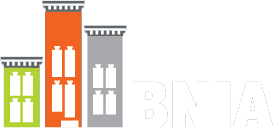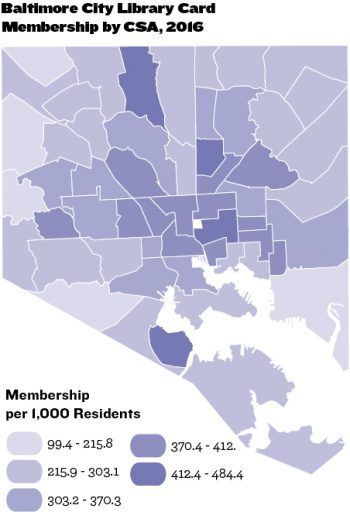Use Case: Policy
Jennifer Mange, Planning Coordinator
Enoch Pratt Free Library
“Data is like a flashlight”: Using Data to Inform Public Policy
In Spring 2016, Jennifer began working on a new project at the Enoch Pratt Free Library. The Maryland General Assembly had recently passed legislation to increase library hours, with $3 million in State funding matched with $750,000 in City funding for a commitment of five years. The Pratt leadership had to devise a strategy for implementing this increase in service hours.
This was a complex task. For one, the Enoch Pratt Library has 22 distinct branches, and a fleet of mobile units, serving a variety of economically diverse neighborhoods throughout the city. How would library leadership and board decide which branches needed more help than others? What would that help actually look like? How best to improve access to the library and also increase the positive impact the library has on their lives of the communities it serves?
To answer these questions, leadership employed a large toolkit. They hired an outside consultant, conducted extensive outreach into the community, sought feedback from neighborhood residents and library patrons, and utilized many of the available datasets for the neighborhoods the library serves. Jennifer consulted BNIA’s Indicators on poverty to help guide her thinking early on in the process, saying “Data is like a flashlight. It helped illuminate a place where I could start.” In this way, quantitative data, in co-operation with qualitative data, helped inform the overall strategy of the Pratt board and leadership.
At the end of the process, they were able to formulate a concrete plan to extend hours at all branches. Launched in January 2018, the plan increased hours by more than 30% with a focus on underserved communities and consistency of service.



